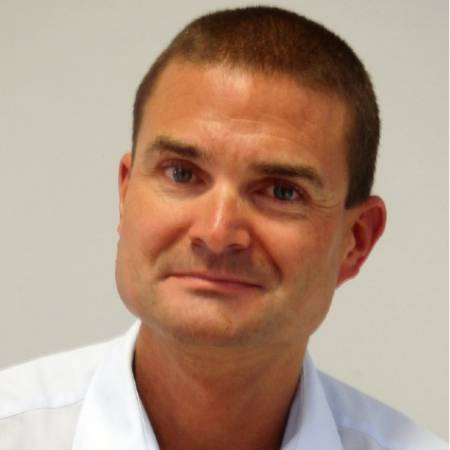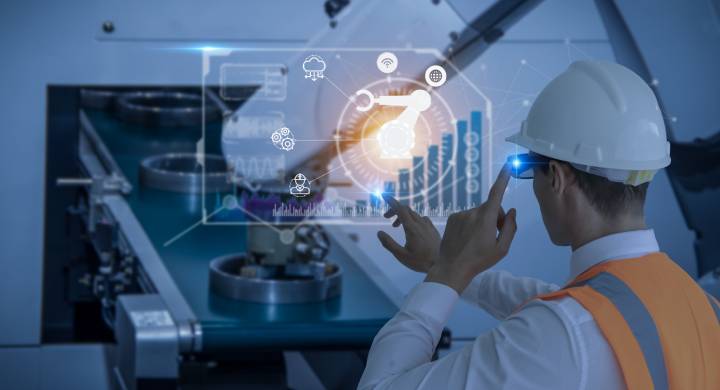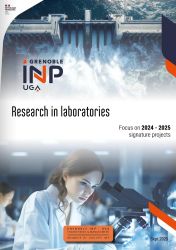After the Industry 3.0 era, which saw the widespread automation of production processes, Industry 4.0 has seen factories equipped with an array of technologies and digital devices designed to optimise their activities. Production methods have become “smart” and highly automated, with devices, machines and operators interconnected at every stage of the value chain. Production lines have become adaptive.
These transformations raise fundamental questions as to what role humans will play in the new industrial era, as businesses confront the urgent need to develop the skills of their employees and the way they organise their work, in order to achieve a smooth and orderly transition.
In order to help businesses navigate this delicate transition, the Grenoble INP Foundation recently launched a new research and teaching chair. Named Industry 4.H (the H stands for Human), its mission is to address the human and managerial challenges posed by the transition to Industry 4.H. Its ultimate ambition is to provide the industrial ecosystem with an effective tool for managing its human dimension.
An integrated design specialist to lead this new chair

The first holder of this new chair is Andreas Riel, Visiting Professor (PAST) at Grenoble INP – Industrial Engineering and researcher at the G-SCOP laboratory. After graduating with a degree in Telematics from Graz University of Technology, Austria (his home country), Prof. Riel specialised in the innovative field of mechatronic systems design, organisation and methods. Upon finishing his studies he joined Austrian firm AVL List, the world's leading centre of powertrain R&D. He spent a decade with AVL List, working in various R&D roles before being named Director of Innovation. During this time, he also completed an Industrial Engineering doctorate at the Technological University of Vienna.
It was here that he realised the vital importance of the links between research and industry, and decided to pursue a career in academia.
“While I was representing AVL on a European project, I met a university professor who put me in touch with Serge Tichkiewitch, who at the time was working at the 3S** laboratory and coordinating the VRL-KCIP network (Virtual Research Laboratory for a Knowledge Community in Production). In 2006, that led to an invitation to join the European coordinating team for VRL-KCIP and to work at the laboratory, which became G-SCOP two years later,” Prof. Riel recalls.
As well as being appointed Director of Innovation by Emiracle, a European association spun off from the VRL-KCIP project which contributed to the creation of EFFRA and EIT Manufacturing, he also became a visiting professor at Grenoble INP – Industrial Engineering, continuing his research while also lecturing on Integrated, Innovative and Sustainable Systems Design. He champions a resolutely multidisciplinary, highly collaborative approach to design, with a clear focus on sustainable innovation and bringing numerous fields, trades and skills into the fold to optimise design processes. Prof. Riel’s industrial experience, coaching mechatronics engineers for numerous major suppliers in the automotive industry, enables him to combine research, teaching, training and industrial optimisation in fruitful synergy. He received HDR research supervisor accreditation in 2012.
Grenoble INP - Industrial Engineering and the G-SCOP laboratory, in partnership with Grenoble IAE – INP and the CERAG*** laboratory, have all the skills needed to address the human and technological challenges of the Industry 4.0 era. The Industry 4.H chair will also be able to make use of the S.mart platform and its additive manufacturing technologies, its virtual and augmented reality capabilities and its design, management and simulation space for production systems, logistical systems and workstations.
The chair’s work will help businesses to identify the talents and skills they need to successfully pivot towards the industry of the future, and adapt their recruitment accordingly. It will also help companies to develop the skills of existing employees, and manage the process of professional transformation. This will require businesses to adapt the organisational culture in which their managers and engineers operate, ensuring that they are well acquainted with the latest digital-industrial concepts.
At the European level, the prospect of Industry 5.0 is already being raised - and looks identical to what we call Industry 4.H. This new chair is thus perfectly aligned with Europe’s strategic vision for 2030!
*CNRS, Grenoble INP – UGA
**CNRS, Grenoble INP – UGA
***Grenoble INP – UGA, UGA




 The first holder of this new chair is Andreas Riel, Visiting Professor (PAST) at Grenoble INP – Industrial Engineering and researcher at the G-SCOP laboratory. After graduating with a degree in Telematics from Graz University of Technology, Austria (his home country), Prof. Riel specialised in the innovative field of mechatronic systems design, organisation and methods. Upon finishing his studies he joined Austrian firm AVL List, the world's leading centre of powertrain R&D. He spent a decade with AVL List, working in various R&D roles before being named Director of Innovation. During this time, he also completed an Industrial Engineering doctorate at the Technological University of Vienna.
The first holder of this new chair is Andreas Riel, Visiting Professor (PAST) at Grenoble INP – Industrial Engineering and researcher at the G-SCOP laboratory. After graduating with a degree in Telematics from Graz University of Technology, Austria (his home country), Prof. Riel specialised in the innovative field of mechatronic systems design, organisation and methods. Upon finishing his studies he joined Austrian firm AVL List, the world's leading centre of powertrain R&D. He spent a decade with AVL List, working in various R&D roles before being named Director of Innovation. During this time, he also completed an Industrial Engineering doctorate at the Technological University of Vienna.